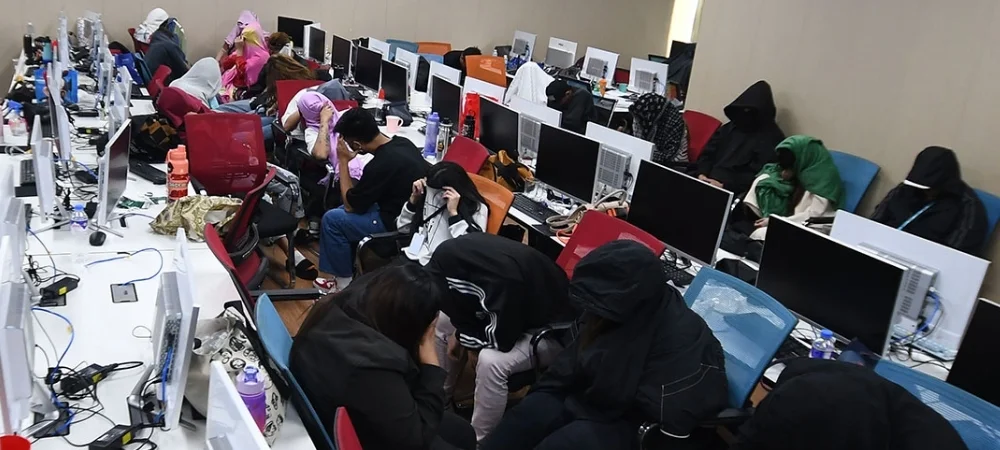The Philippines crackdown on POGOs continues to intensify. However, a new surge in illicit activity now threatens to undermine this nationwide effort.
Authorities now face what they describe as an alarming trend. Guerrilla scam hubs are rapidly filling the vacuum left behind by POGOs. These underground operations evolve faster than enforcement can keep up. As a result, they present new challenges for both regulators and law enforcement.
Interior Secretary Juanito Victor Remulla has called on local government units (LGUs) to stay alert. He urged mayors and city officials to conduct stricter inspections of businesses, especially after they issue occupancy permits.
Remulla warned that many illegal POGO operators now disguise themselves as legitimate businesses. These include resorts, restaurants, and entertainment venues. They use this front to operate quietly, hoping to avoid detection before the government’s December 31 shutdown deadline.
A recent operation in Lapu-Lapu City revealed this tactic in action. Authorities raided a supposed hotel and restaurant, which turned out to be a hidden POGO hub. Remulla stressed the critical role of LGUs in confirming whether businesses are operating as claimed.
Meanwhile, the Philippine National Police (PNP) and the National Bureau of Investigation (NBI) have taken the lead in enforcement. These agencies now work in coordination with cybercrime units and regulatory offices to dismantle illicit operations.
The campaign to eliminate POGOs began with a directive from President Ferdinand Marcos Jr. During his July State of the Nation Address, he called for an outright ban. In response, the Philippine Amusement and Gaming Corporation (PAGCOR) now holds the responsibility to ensure that all licensed POGOs fully shut down by the end of the year.
However, Senator Risa Hontiveros has raised a red flag. She revealed that as POGOs disappear, scam hubs have started to expand. These new setups no longer rely on POGO licenses to mask their activity. Instead, they operate as independent criminal fronts that evade traditional oversight.
Speaking during Senate budget hearings, Hontiveros challenged the Department of Information and Communications Technology (DICT) to explain its strategy. She demanded clarity on how its Cybercrime Investigation and Coordinating Center (CICC) plans to fight these emerging threats.
Senator Sherwin Gatchalian added that the CICC has already dismantled 11 scam hubs. These operations were tied to both legal and illegal entities. He credited advanced surveillance tools, public tip lines, and cross-agency coordination for these wins.
Even so, the DICT chose not to publicly detail its technical approach. It instead requested an executive session to discuss sensitive methods. Officials emphasized the importance of confidentiality to avoid tipping off criminal groups.
Despite some success, authorities recognize that guerrilla scam hubs continue to evolve. Hontiveros warned that if left unchecked, these schemes could escalate and cause even greater damage. Not only do they target vulnerable citizens, but they also destabilize local economies and erode community safety.
As the December 31 deadline approaches, government agencies are ramping up efforts. These include surprise inspections, digital monitoring, and fast-response protocols. Their goal is to dismantle illegal gambling rings and prevent new criminal networks from taking root.
Ultimately, the Marcos administration remains firm in its goal. It aims to dismantle all POGO-linked operations and prevent successor scams from spreading. By doing so, the government hopes to restore public trust, ensure regulatory integrity, and protect Filipino communities from long-term harm.












